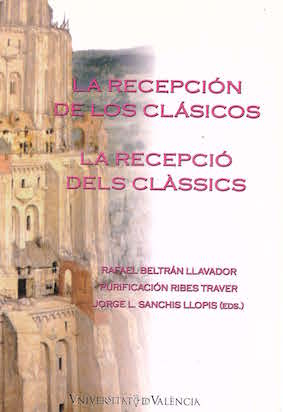Dinamicidad de los clásicos. Ecos de El Paraíso perdido de John Milton en Sombra del Paraíso de Vicente Aleixandre: tras la estela del ángel caído
DOI:
https://doi.org/10.7203/qf-elit.v10i0.5108Keywords:
Vicente Aleixandre, John Milton, Spanish Poetry, Fallen Angel Abstract
Abstract
Vicente Aleixandre’s Sombra del Paraíso (1944) is undoubtedly one of the most important titles of twentieth century Spanish poetry. The reasons for this are twofold. Firstly, because of its meaning within the post-Civil war period –its nostalgic air, its long verse, its existentialist approach, Aleixandre’s vital experience–, as well as his attitude towards social poetry. Secondly, because of what the book meant within the context of his own poetry which based on his vision of the world. This paper aims at showing one of the less studied, but still important, sources of this book: Milton’s Paradise Lost (1674). Milton’s poem stands as a clear reference to the symbolic creation of the fall of Aleixandre’s “ángel caído” (fallen angel) – central theme of his poetry. The differences are both qualitative and quantitative. Nevertheless, there are certain revealing similarities which do not play down the Spanish poet’s creations. On the contrary, they link his poetry to the classic European tradition and enhancing his importance as a literary classic.
 Downloads
Downloads
Downloads
Published
How to Cite
-
Abstract271
-
PDF (Español)221
Issue
Section
License
 Este obra está bajo una licencia de Creative Commons Reconocimiento-NoComercial-SinObraDerivada 4.0 Internacional.
Este obra está bajo una licencia de Creative Commons Reconocimiento-NoComercial-SinObraDerivada 4.0 Internacional.
Authors who publish with this journal agree to the following terms:
- Authors retain copyright and grant the journal right of first publication with the work simultaneously licensed under a Creative Commons Attribution License that allows others to share the work with an acknowledgement of the work's authorship and initial publication in this journal.
- Authors are able to enter into separate, additional contractual arrangements for the non-exclusive distribution of the journal's published version of the work (e.g., post it to an institutional repository or publish it in a book), with an acknowledgement of its initial publication in this journal.
- Authors are permitted and encouraged to post their work online (e.g., in institutional repositories or on their website) prior to and during the submission process, as it can lead to productive exchanges, as well as earlier and greater citation of published work (See The Effect of Open Access).



